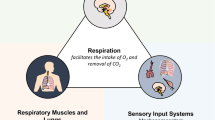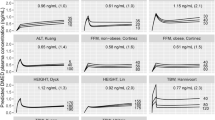Abstract
Background
Exposure to volatile anesthetics has been reported to cause temporary or sustained impairments in learning and memory in pre-clinical studies. The selective antagonists of the histamine H3 receptors (H3R) are considered to be a promising group of novel therapeutic agents for the treatment of cognitive disorders. The aim of this study was to evaluate the effect of H3R antagonist ciproxifan on isoflurane-induced deficits in an object recognition task.
Methods
Adult C57BL/6 J mice were exposed to isoflurane (1.3 %) or vehicle gas for 2 h. The object recognition tests were carried at 24 h or 7 days after exposure to anesthesia to exploit the tendency of mice to prefer exploring novel objects in an environment when a familiar object is also present. During the training phase, two identical objects were placed in two defined sites of the chamber. During the test phase, performed 1 or 24 h after the training phase, one of the objects was replaced by a new object with a different shape. The time spent exploring each object was recorded.
Results
A robust deficit in object recognition memory occurred 1 day after exposure to isoflurane anesthesia. Isoflurane-treated mice spent significantly less time exploring a novel object at 1 h but not at 24 h after the training phase. The deficit in short-term memory was reversed by the administration of ciproxifan 30 min before behavioral training.
Conclusion
Isoflurane exposure induces reversible deficits in object recognition memory. Ciproxifan appears to be a potential therapeutic agent for improving post-anesthesia cognitive memory performance.



Similar content being viewed by others
References
Zhang Y, Xu Z, Wang H, Dong Y, Shi HN, Culley DJ, Crosby G, Marcantonio ER, Tanzi RE, Xie Z. Anesthetics isoflurane and desflurane differently affect mitochondrial function, learning, and memory. Ann Neurol. 2012;71:687–98.
El Tahan MR. Effects of aminophylline on cognitive recovery after sevoflurane anesthesia. J Anesth. 2011;25:648–56.
Hudson AE, Hemmings HC Jr. Are anaesthetics toxic to the brain? Br J Anaesth. 2011;107:30–7.
Sauër AM, Kalkman C, van Dijk D. Postoperative cognitive decline. J Anesth. 2009;23:256–9.
Zurek AA, Bridgwater EM, Orser BA. Inhibition of alpha5 gamma-Aminobutyric acid type A receptors restores recognition memory after general anesthesia. Anesth Analg. 2012;114:845–55.
Pearce RA, Duscher P, Van Dyke K, Lee M, Andrei AC, Perouansky M. Isoflurane impairs odour discrimination learning in rats: differential effects on short- and long-term memory. Br J Anaesth. 2012;108:630–7.
Culley DJ, Baxter MG, Crosby CA, Yukhananov R, Crosby G. Impaired acquisition of spatial memory 2 weeks after isoflurane and isoflurane-nitrous oxide anesthesia in aged rats. Anesth Analg. 2004;99:1393–7 (table of contents).
Culley DJ, Baxter M, Yukhananov R, Crosby G. The memory effects of general anesthesia persist for weeks in young and aged rats. Anesth Analg. 2003;96:1004–9 (table of contents).
Panula P, Yang HY, Costa E. Histamine-containing neurons in the rat hypothalamus. Proc Natl Acad Sci USA. 1984;81:2572–6.
Watanabe T, Taguchi Y, Shiosaka S, Tanaka J, Kubota H, Terano Y, Tohyama M, Wada H. Distribution of the histaminergic neuron system in the central nervous system of rats; a fluorescent immunohistochemical analysis with histidine decarboxylase as a marker. Brain Res. 1984;295:13–25.
Luo T, Leung LS. Basal forebrain histaminergic transmission modulates electroencephalographic activity and emergence from isoflurane anesthesia. Anesthesiology. 2009;111:725–33.
Mammoto T, Yamamoto Y, Kagawa K, Hayashi Y, Mashimo T, Yoshiya I, Yamatodani A. Interactions between neuronal histamine and halothane anesthesia in rats. J Neurochem. 1997;69:406–11.
Luo T, Leung LS. Involvement of tuberomamillary histaminergic neurons in isoflurane anesthesia. Anesthesiology. 2011;115:36–43.
Haas HL, Sergeeva OA, Selbach O. Histamine in the nervous system. Physiol Rev. 2008;88:1183–241.
Esbenshade TA, Browman KE, Bitner RS, Strakhova M, Cowart MD, Brioni JD. The histamine H3 receptor: an attractive target for the treatment of cognitive disorders. Br J Pharmacol. 2008;154:1166–81.
Gemkow MJ, Davenport AJ, Harich S, Ellenbroek BA, Cesura A, Hallett D. The histamine H3 receptor as a therapeutic drug target for CNS disorders. Drug Discov Today. 2009;14:509–15.
Ligneau X, Lin J, Vanni-Mercier G, Jouvet M, Muir JL, Ganellin CR, Stark H, Elz S, Schunack W, Schwartz J. Neurochemical and behavioral effects of ciproxifan, a potent histamine H3-receptor antagonist. J Pharmacol Exp Ther. 1998;287:658–66.
Budson AE, Dodson CS, Daffner KR, Schacter DL. Metacognition and false recognition in Alzheimer’s disease: further exploration of the distinctiveness heuristic. Neuropsychology. 2005;19:253–8.
Dudas RB, Clague F, Thompson SA, Graham KS, Hodges JR. Episodic and semantic memory in mild cognitive impairment. Neuropsychologia. 2005;43:1266–76.
Dere E, Huston JP, De Souza Silva MA. The pharmacology, neuroanatomy and neurogenetics of one-trial object recognition in rodents. Neurosci Biobehav Rev. 2007;31:673–704.
Wu J, Zhao Z, Sabirzhanov B, Stoica BA, Kumar A, Luo T, Skovira J, Faden AI. Spinal cord injury causes brain inflammation associated with cognitive and affective changes: role of cell cycle pathways. J Neurosci. 2014;34:10989–1006.
Antunes M, Biala G. The novel object recognition memory: neurobiology, test procedure, and its modifications. Cogn Process. 2012;13:93–110.
Vianna MR, Izquierdo LA, Barros DM, Walz R, Medina JH, Izquierdo I. Short- and long-term memory: differential involvement of neurotransmitter systems and signal transduction cascades. An Acad Bras Cienc. 2000;72:353–64.
Izquierdo LA, Barros DM, Vianna MR, Coitinho A, deDavid e Silva T, Choi H, Moletta B, Medina JH, Izquierdo I. Molecular pharmacological dissection of short- and long-term memory. Cell Mol Neurobiol. 2002;22:269–87.
Lin D, Zuo Z. Isoflurane induces hippocampal cell injury and cognitive impairments in adult rats. Neuropharmacology. 2011;61:1354–9.
Crosby C, Culley DJ, Baxter MG, Yukhananov R, Crosby G. Spatial memory performance 2 weeks after general anesthesia in adult rats. Anesth Analg. 2005;101:1389–92.
Su D, Zhao Y, Wang B, Li W, Xiao J, Chen J, Wang X. Repeated but not single isoflurane exposure improved the spatial memory of young adult mice. Acta Anaesthesiol Scand. 2011;55:468–73.
Butterfield NN, Graf P, Ries CR, MacLeod BA. The effect of repeated isoflurane anesthesia on spatial and psychomotor performance in young and aged mice. Anesth Analg. 2004;98:1305–11 (table of contents).
Fidalgo AR, Cibelli M, White JP, Nagy I, Wan Y, Ma D. Isoflurane causes neocortical but not hippocampal-dependent memory impairment in mice. Acta Anaesthesiol Scand. 2012;56:1052–7.
Kapila AK, Watts HR, Wang T, Ma D. The impact of surgery and anesthesia on post-operative cognitive decline and Alzheimer’s disease development: biomarkers and preventive strategies. J Alzheimer’s Dis. 2014;41:1–13.
Lyman M, Lloyd DG, Ji X, Vizcaychipi MP, Ma D. Neuroinflammation: the role and consequences. Neurosci Res. 2014;79:1–12.
Zurek AA, Yu J, Wang DS, Haffey SC, Bridgwater EM, Penna A, Lecker I, Lei G, Chang T, Salter EW, Orser BA. Sustained increase in alpha5GABAA receptor function impairs memory after anesthesia. J Clin Invest. 2014;124:5437–41.
Wei H, Xie Z. Anesthesia, calcium homeostasis and Alzheimer’s disease. Curr Alzheimer Res. 2009;6:30–5.
Pascoli V, Boer-Saccomani C, Hermant JF. H3 receptor antagonists reverse delay-dependent deficits in novel object discrimination by enhancing retrieval. Psychopharmacology. 2009;202:141–52.
Trofimiuk E, Braszko JJ. Single dose of H3 receptor antagonist–ciproxifan–abolishes negative effects of chronic stress on cognitive processes in rats. Psychopharmacology. 2014;231:209–19.
Bardgett ME, Davis NN, Schultheis PJ, Griffith MS. Ciproxifan, an H3 receptor antagonist, alleviates hyperactivity and cognitive deficits in the APP Tg2576 mouse model of Alzheimer’s disease. Neurobiol Learn Mem. 2011;95:64–72.
Fox GB, Esbenshade TA, Pan JB, Radek RJ, Krueger KM, Yao BB, Browman KE, Buckley MJ, Ballard ME, Komater VA, Miner H, Zhang M, Faghih R, Rueter LE, Bitner RS, Drescher KU, Wetter J, Marsh K, Lemaire M, Porsolt RD, Bennani YL, Sullivan JP, Cowart MD, Decker MW, Hancock AA. Pharmacological properties of ABT-239 [4-(2-{2-[(2R)-2-Methylpyrrolidinyl]ethyl}-benzofuran-5-yl)benzonitrile]: II. Neurophysiological characterization and broad preclinical efficacy in cognition and schizophrenia of a potent and selective histamine H3 receptor antagonist. J Pharmacol Exp Ther. 2005;313:176–90.
Bardgett ME, Points M, Kleier J, Blankenship M, Griffith MS. The H3 antagonist, ciproxifan, alleviates the memory impairment but enhances the motor effects of MK-801 (dizocilpine) in rats. Neuropharmacology. 2010;59:492–502.
Bacciottini L, Passani MB, Giovannelli L, Cangioli I, Mannaioni PF, Schunack W, Blandina P. Endogenous histamine in the medial septum-diagonal band complex increases the release of acetylcholine from the hippocampus: a dual-probe microdialysis study in the freely moving rat. Eur J Neurosci. 2002;15:1669–80.
Hajos M, Siok CJ, Hoffmann WE, Li S, Kocsis B. Modulation of hippocampal theta oscillation by histamine H3 receptors. J Pharmacol Exp Ther. 2008;324:391–8.
Perouansky M, Hentschke H, Perkins M, Pearce RA. Amnesic concentrations of the nonimmobilizer 1,2-dichlorohexafluorocyclobutane (F6, 2N) and isoflurane alter hippocampal theta oscillations in vivo. Anesthesiology. 2007;106:1168–76.
Perouansky M, Rau V, Ford T, Oh SI, Perkins M, Eger EI 2nd, Pearce RA. Slowing of the hippocampal theta rhythm correlates with anesthetic-induced amnesia. Anesthesiology. 2010;113:1299–309.
Acknowledgments
This study was supported by the Nature Science Foundation of China (Grant Numbers 81102863, 81271205) and the Health and Family Planning Commission of Shenzhen Municipality (Research Grant Number 201501025).
Author information
Authors and Affiliations
Corresponding author
Ethics declarations
Conflict of interest
The authors declare no conflict of interest related to this work.
About this article
Cite this article
Ding, F., Zheng, L., Liu, M. et al. Ciproxifan, an H3 receptor antagonist, improves short-term recognition memory impaired by isoflurane anesthesia. J Anesth 30, 684–690 (2016). https://doi.org/10.1007/s00540-016-2189-y
Received:
Accepted:
Published:
Issue Date:
DOI: https://doi.org/10.1007/s00540-016-2189-y




